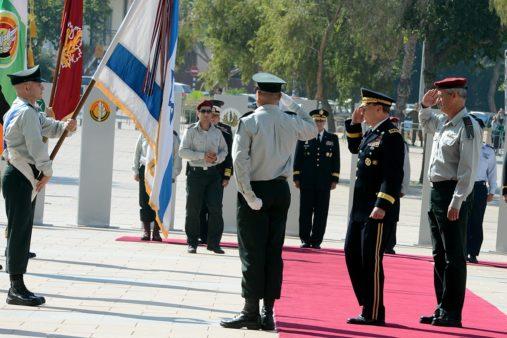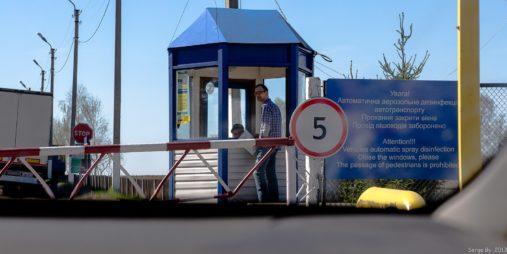Welcome to our roundup of news and current events related to ethics and international affairs! Here’s some of what we’ve been reading this past month:
 COVID-19 vaccines. Photo credit: Agência Brasília via Flickr
COVID-19 vaccines. Photo credit: Agência Brasília via Flickr
BBC: Omicron: WHO concerned rich countries could hoard vaccines
With the Omicron variant spreading globally, the WHO has recently expressed concern that wealthy countries in the West might begin to hoard vaccine supplies, which could jeopardize nations in which most people are still not vaccinated against COVID-19. Kate O’Brien, WHO vaccine director, has prompted richer nations to continue donating their excess vaccine doses to countries with higher rates of vaccine inequity. There is not clear evidence as to how contagious or severe the Omicron variant is. Officials in the UK note that early evidence suggests that Omicron holds the proclivity to be more transmissible than the Delta variant, but its ability to cause less or more severe disease than Delta is not entirely clear yet.
Read more about COVID-19, vaccine ethics, and global health in Ethics & International Affairs:
On the Ethics of Vaccine Nationalism: The Case for the Fair Priority for Residents Framework (October 2021)
The Global Politics of Health Security before, during, and after COVID-19 (2021: Volume 35.3)
COVID-19, the UN, and Dispersed Global Health Security (2020: Volume 34.3)
 U.S.-Israel Military Exercise. Photo Credit: U.S. Embassy Tel Aviv via Wikimedia Commons
U.S.-Israel Military Exercise. Photo Credit: U.S. Embassy Tel Aviv via Wikimedia Commons
Reuters: Exclusive: U.S., Israel to discuss military drills for Iran scenario
U.S. and Israeli defense chiefs are scheduled to meet on Thursday, December 9 to discuss potential joint-military exercises for a worst-case scenario outcome, if diplomacy with Iran fails as it relates to Iranian nuclear capabilities. This meeting comes in light of the International Atomic Energy Agency (IAEA) stating last week that Iran had commenced enriching uranium again at Fordow Plant, which is nestled deep into the mountains, making the plant hard to intercept, monitor, or attack. While the 2015 agreement granted Iran sanctions relief, it included strict stipulations demanding limitations on uranium enrichment activities.
Read more about war, alliances, and a changing world order in Ethics & International Affairs:
Democracy and the Preparation and Conduct of War (2021: Volume 35.3)
War, Duties to Protect, and Military Abolitionism (2021: Volume 35.3)
Justice Between Wars (2021: Volume 35.3)
 Caracas, Venezuela. Photo Credit: Wilfredor via Wikimedia Commons
Caracas, Venezuela. Photo Credit: Wilfredor via Wikimedia Commons
NPR: The U.S. predicted his downfall but Maduro strengthens his grip on power in Venezuela
Despite the U.S. maximum pressure campaign, and Venezuela’s dwindling economic crisis, Maduro is still holding onto his power. Along with the United States, more than fifty other governments have recognized Juan Guaido, the Venezuelan opposition leader, as the nation’s head of state. U.S. predictions boasted that sanctions on the oil industry—the industry Venezuela’s economy is dependent on—would remove Maduro from power. Experts posit that Maduro’s support comes from various sources; the Venezuelan military is one of them. Despite U.S. sanctions, Maduro harbors enough cash to pay the military and in return has its support to control opposition. Events unfolding in Venezuela serve as an indicator to U.S. policymakers that aggressive sanctions policy can be met with resistance from authoritarian regimes who circumvent the reach of sanctions through illicit and corrupt means.
Read more about political violence, authoritarianism, and economic statecraft in Ethics & International Affairs:
Rethinking the Nature of States and Political Violence (2021: Volume 35.1)
Resources for the People—but Who Are the People? Mistaken Nationalism in Resource Sovereignty (2021: Volume 35.1)
The Not So Targeted Instrument of Asset Freezes (2019: Volume 33.3)
 Russia-Ukraine border. Photo Credit: Sergey Bystro via Wikimedia Commons
Russia-Ukraine border. Photo Credit: Sergey Bystro via Wikimedia Commons
Reuters: Biden says putting U.S. troops on ground in Ukraine is 'not on the table'
On Wednesday, December 8, U.S. President Joe Biden made it clear that he would not place American troops in Ukraine as a deterrence measure against potential Russian invasion. He also noted that he would meet with NATO allies to discuss Russia’s activities in the eastern front. Instead of military action, President Biden conveyed to Putin that Russia should expect severe economic sanctions if it invades Ukraine. While there were concerns in the U.S. national security community about Biden making concessions to Putin, the White House noted on Tuesday that no concessions were made. With Russia’s growing anxieties about NATO’s eastward expansion, Moscow has placed tens of thousands of troops on Ukraine’s border as a defense measure. In response, Biden has noted he would provide defensive measures to Ukraine as well. Amidst this standoff, it is evident that U.S.-Russia relations are at their lowest point in years.
Read more about empires, the war-machine, and nonviolent power in Ethics & International Affairs:
Nation-States, Empires, Wars, Hostilities (2021: Volume 35.3)
Deconstructing Nonviolence and the War-Machine: Unarmed Coups, Nonviolent Power, and Armed Resistance (2021: Volume 35.3)
Are States under a Prospective Duty to Create and Maintain Militaries? (2021: Volume 35.3)